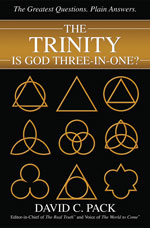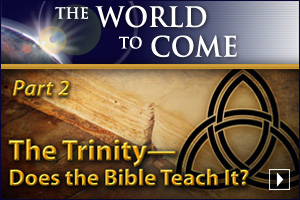This scripture reads: “But the day of the Lord will come as a thief in the night; in the which the heavens shall pass away with a great noise, and the elements shall melt with fervent heat, the earth also and the works that are therein shall be burned up.”
Although II Peter 3:10 begins by citing “the day of the Lord,” it uses this event as the opening benchmark in time which unleashes a long series of end-time events culminating in what was mentioned in verse 7. Of course, verse 7 establishes the context of what Peter was focusing upon: “But the heavens and the earth, which are now, by the same word are kept store, reserved unto fire against the day of judgment and perdition of ungodly men.” This is the time of the judgment and destruction of incorrigible and unrepentant sinners that remain on the earth (Matt. 3:12). It also is the culminating event (Rev. 20:13-15) in God’s Plan of Salvation to occur just before the New Heavens and the New Earth discussed in the two final chapters of Revelation.
It is understood that an extensive series of events take place from the time of the “day of the Lord” until the culminating event of the lake of fire which engulfs the earth. Revelation chapter 20 lists this series of intervening events to occur after the “day of the Lord.” The first of these crucial junctures involves the putting away of Satan (Rev. 20:1-3). Next is the establishment of the kingdom of God on earth for one thousand years (verses 4-6). This is followed by Satan’s final rebellion at the end of the Millennium and his being thrown into the same lake of fire where the beast and false prophet were previously cast (verses 7-10). The next benchmark event is the general resurrection referred to as the Great White Throne judgment (verses 11-12). (Many mistakenly think of this 100-year time of judgment—see Isaiah 65:20-21—as merely the resurrected masses standing in line for “sentencing.”) Only after these events listed in Revelation 20 comes the time of the fire mentioned by Peter.
The lake of fire (Rev. 20:13-15) will destroy or refine all physical components of earth, as Peter describes: “…and the elements shall melt with fervent heat, the earth also and the works that are therein shall be burned up.” It is called “unquenchable” in Matthew 3:12 because it cannot be “put out”—it will burn and continue to “purge” until there is no fuel left for it to consume. All remaining life forms and physical remnants left on the earth’s surface, and in its atmosphere, will be either consumed or refined in this fire. Spirit beings will survive this purging process, since they are not affected by physical fire.
In II Peter 3:6, Peter compares this cleansing fire to the flood in Noah’s time that was also used by God to rid the earth of sin. And just as with the flood, the planet itself will not be destroyed by this fire, but simply “wiped clean.” The earth will continue to exist (Ecc. 1:4), but in a renewed form.
Continuing in verse 13: “…we, according to His promise, look for new heavens and a new earth, wherein dwells righteousness.” This is confirmed in Revelation 21:1: “And I saw a new heaven and a new earth: for the first heaven and the first earth were passed away; and there was no more sea,” right after the account of the lake of fire (20:14-15).
Peter then is simply describing, in II Peter 3:10, the cleansing action of the “lake of fire.” The earth’s surface and atmosphere, and everything physical in it, including the unrepentant, will be permanently destroyed. God then will “renew” the earth’s surface in preparation to receive Him and His Family: “And I John saw the holy city, new Jerusalem, coming down from God out of heaven, prepared as a bride adorned for her husband. And I heard a great voice out of heaven saying, Behold, the tabernacle of God is with men, and He will dwell with them, and they shall be His people, and God Himself shall be with them, and be their God.” (See Revelation 21:2-3, also the rest of chapter 21, as well as chapter 22).


















